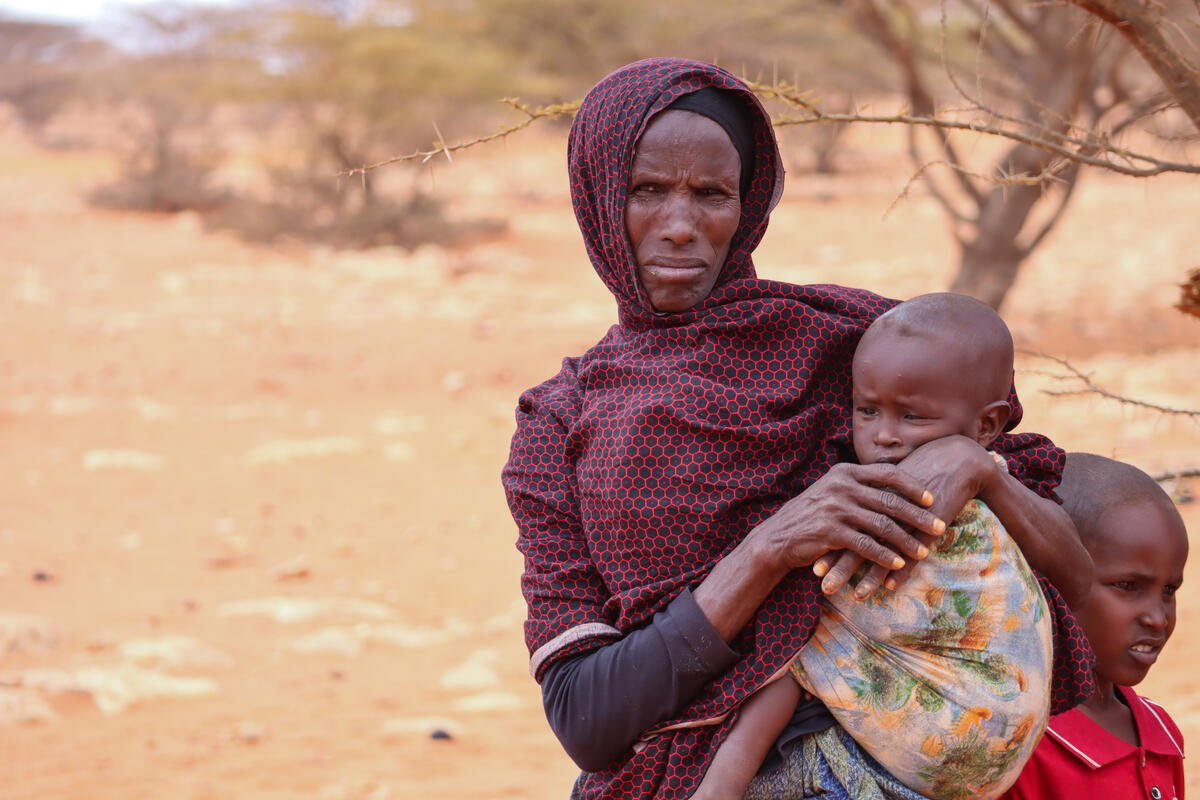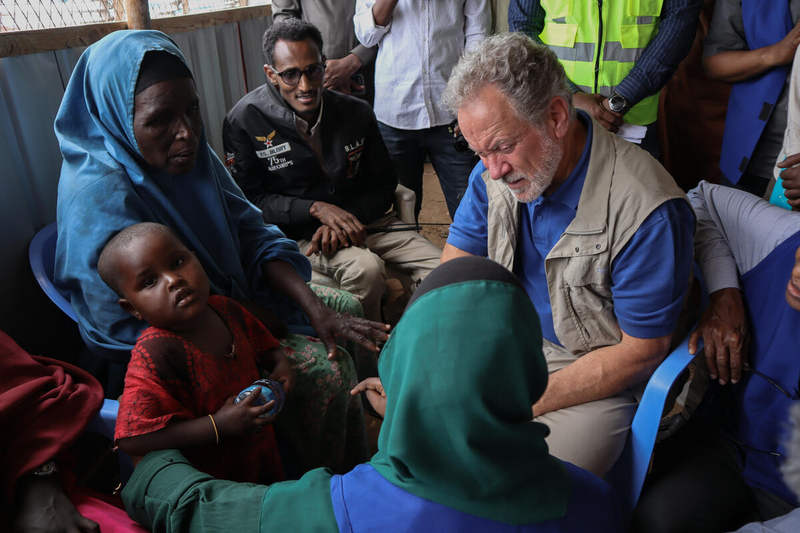Horn of Africa ‘Cannot wait’: WFP scales up assistance as historic drought raises famine threat

GOOBJOOG NEWS|NAIROBI: The UN World Food Programme (WFP) has announced it is increasing assistance in the Horn of Africa as the threat of famine grows and hunger levels increase following consecutive droughts.
According to the WFP, 9 million more people have fallen into acute food insecurity since the year began, leaving 22 million people without enough to eat in Somalia, Ethiopia and Kenya.
On Thursday, WFP Executive Director David Beasley visited Somalia, where over 7 million people, or over half the population, experience acute food insecurity and 213,000 people are already experiencing famine-like circumstances.
In the southern city of Baardheere, Beasley encountered families – including malnourished children and their mothers – compelled to flee their homes and travel great distances across areas of armed strife in quest of humanitarian aid.
“People here have been waiting years for rain – but they cannot wait any longer for life-saving food assistance. The world needs to act now to protect the most vulnerable communities from the threat of widespread famine in the Horn of Africa,” said Beasley. “There is still no end in sight to this drought crisis, so we must get the resources needed to save lives and stop people plunging into catastrophic levels of hunger and starvation.”
WFP has announced that it will now reach three times as many people in the Baardheere region with life-saving food assistance, where tens of thousands of people have been displaced from their homes due to war and drought.
The World Food Programme has also added that it is targeting 8.5 million people across the Horn of Africa, up from 6.3 million at the start of the year with life-saving assistance in areas worst hit by the drought, as it is expected that the drought will continue in coming months, with a fifth poor rainy season forecast later this year.
In order to treat spiraling rates of malnutrition and stop more people in some of the most vulnerable regions from slipping closer to famine, WFP has said it is distributing fortified foods to mothers and young children across the three drought-affected nations. Additionally, WFP cash subsidies and insurance programs assist people in purchasing food to keep livestock alive or to make up for the loss of their animals.
13 million people in the Horn of Africa were experiencing severe food insecurity at the beginning of the year, according to a WFP warning. By September, the estimate is expected to increase once more to at least 22 million if the upcoming rainy season (October to December) fails. The body has also warned that there is a potential of famine posing a serious risk, particularly in Somalia.
In Somalia, WFP is continuing to scale up emergency food support to reach 4.5 million people in the coming months. In July, WFP reached a record 3.7 million people with life-saving food assistance, the highest ever reached in a single month, and a significant increase from 1.7 million people supported in April. WFP has also nearly doubled targets for its malnutrition treatment programme, aiming to provide 444,000 young children and mothers with nutrition support.
